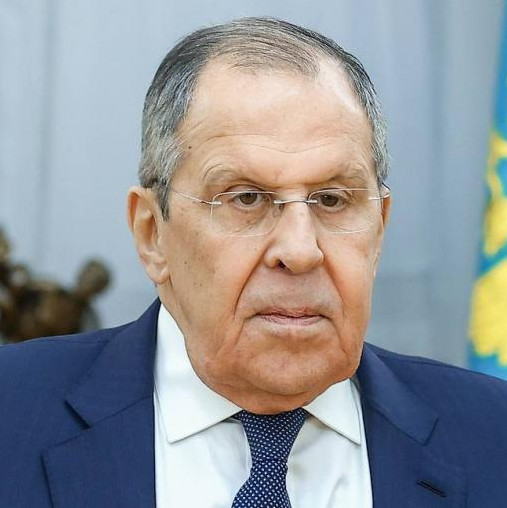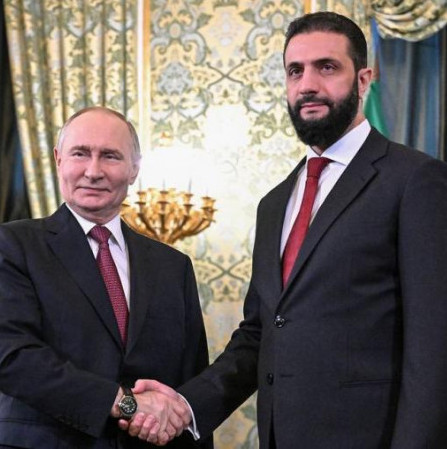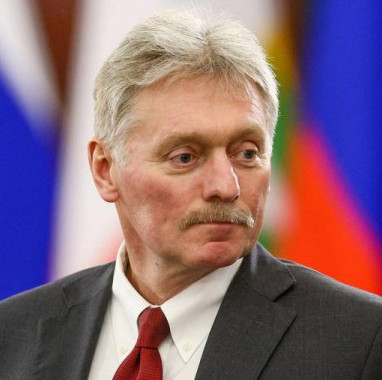In spite of the destructive floods raging in many European countries, the leadership of United Europe has found time to delve into Byelorussian problems.
As is known, the European Union, alongside with the USA, has long been concerned with the "state of democracy" in that country. However, up to now the concern went no farther than diplomatic representations and support for the Byelorussian opposition. This time the zealots of democratic freedoms have gone much farther: the European Commission decided to allocate 130,000 Euros for setting up radio and Internet broadcasting to Byelorussia in the Byelorussian language, in order "to promote democracy".
The contract for the preparation and organization of programs has been given to the notorious "Deutsche Welle" radio-station which has vast experience and a lengthy service record of participation in the information-and-psychological operations of the times of the "cold war". Initially the programs would be broadcast in Russian, but later on the broadcasting would change over to the Byelorussian language.
As has been disclosed, at Stage 1 the "Deutsche Welle" would go on the air on weekdays with 15-minute programs targeted on Byelorussia and featuring political, economic and social issues, and using its own network of correspondents inside Byelorussia and its neighbors, first of all in Ukraine and Lithuania.
The statement released by the European Commission on the matter claims that "this measure would help the Byelorussian people to better know what democracy, pluralism, supremacy of law, freedom of the press and human rights mean". According to Mrs. Benita Ferrero-Valdner, who is responsible for public relations and European integration policy in the European Commission, "we are greatly concerned with the shortage of the freedom of speech in Byelorussia. Over a few recent years the independent mass media have been suffering ever more severe persecution in that country".
The press release of the European Commission reminds that the EU is keeping in force its restrictions on contacts with Byelorussian authorities at the level on ministers, but at the same time "supports the civil society and democracy in Byelorussia".
Independent observers note in this connection that the standoff between Byelorussian President Alexander Lukashenko, who is known for his tough anti-Western stance, and the leadership of the USA and European Union is of long standing. Washington and Brussels make no secret of their desire to have a speedy change of regime in Byelorussia, as its present-day leader is absolutely not to their liking.
Western media and official political propaganda have been actively engaged in recent years in a campaign to discredit both Lukashenko himself and his policies. The current leader of Byelorussia is called in the West none other than "the last dictator in Europe" and put in the same row with Slobodan Miloshevich imprisoned in the Hague, hinting at Lukashenko possibly sharing in future Miloshevich's fate.
According to some observers, in order to swiftly do away with Lukashenko's regime the West is not only trying to instigate yet another "flower revolution" in Byelorussia, but also to isolate it, as much as possible, at the international level. To accomplish that task, an ever greater emphasis is being put on the countries of the "triumphant democracy" - Ukraine and Georgia, the Baltic States and Poland. Those countries have given shelter to the headquarters and coordinating centers of the Byelorussian opposition, and its newspapers, magazines and leaflets are printed there.
Besides, it is common knowledge that intense political and diplomatic pressure is being constantly exerted on Russian leadership over the Byelorussian issue. Moscow is being pressed to give up or cut down to the minimum all its ties with the Byelorussian leadership, while such a step is often linked to the progress in the development of political and economic relations between Russia and the West.
In this context it becomes evident that information and psychological operations play an important role in the West's fight against the Lukashenko regime. For instance, lately the European media have been making much hullabaloo about Byelorussian opposition cartoonists Andrei Obuzov and Pavel Morozov who have been charged with posting in the Internet cartoons featuring President Lukashenko as the main character.
The tough reaction of the Byelorussian special services which detained the cartoonists and confiscated 12 computers in their studio, was presented as yet another proof of the lack of democracy in that country where, as distinct from the rest of Europe, "cartoons with a political content are not taken as harmless satire". The Western media presented Byelorussian authorities' actions in this case as a proof of the "paranoia afflicting President Lukashenko".
The decision by the European Commission to allocate considerable funds for waging information-and-psychological warfare against Byelorussia demonstrates that the standoff between the West and the Byelorussian pariah-President is entering a new and, to all appearances, more harsh stage.
Western analysts make no secret that the new measures to fight the "totalitarian regime" in Minsk are called on, in the final account, to close up the ring of "flower revolutions" around Russia and thwart its unification with Byelorussia – a union that, in view of many influential circles in Washington and Brussels, must be prevented by all means.
As is known, the European Union, alongside with the USA, has long been concerned with the "state of democracy" in that country. However, up to now the concern went no farther than diplomatic representations and support for the Byelorussian opposition. This time the zealots of democratic freedoms have gone much farther: the European Commission decided to allocate 130,000 Euros for setting up radio and Internet broadcasting to Byelorussia in the Byelorussian language, in order "to promote democracy".
The contract for the preparation and organization of programs has been given to the notorious "Deutsche Welle" radio-station which has vast experience and a lengthy service record of participation in the information-and-psychological operations of the times of the "cold war". Initially the programs would be broadcast in Russian, but later on the broadcasting would change over to the Byelorussian language.
As has been disclosed, at Stage 1 the "Deutsche Welle" would go on the air on weekdays with 15-minute programs targeted on Byelorussia and featuring political, economic and social issues, and using its own network of correspondents inside Byelorussia and its neighbors, first of all in Ukraine and Lithuania.
The statement released by the European Commission on the matter claims that "this measure would help the Byelorussian people to better know what democracy, pluralism, supremacy of law, freedom of the press and human rights mean". According to Mrs. Benita Ferrero-Valdner, who is responsible for public relations and European integration policy in the European Commission, "we are greatly concerned with the shortage of the freedom of speech in Byelorussia. Over a few recent years the independent mass media have been suffering ever more severe persecution in that country".
The press release of the European Commission reminds that the EU is keeping in force its restrictions on contacts with Byelorussian authorities at the level on ministers, but at the same time "supports the civil society and democracy in Byelorussia".
Independent observers note in this connection that the standoff between Byelorussian President Alexander Lukashenko, who is known for his tough anti-Western stance, and the leadership of the USA and European Union is of long standing. Washington and Brussels make no secret of their desire to have a speedy change of regime in Byelorussia, as its present-day leader is absolutely not to their liking.
Western media and official political propaganda have been actively engaged in recent years in a campaign to discredit both Lukashenko himself and his policies. The current leader of Byelorussia is called in the West none other than "the last dictator in Europe" and put in the same row with Slobodan Miloshevich imprisoned in the Hague, hinting at Lukashenko possibly sharing in future Miloshevich's fate.
According to some observers, in order to swiftly do away with Lukashenko's regime the West is not only trying to instigate yet another "flower revolution" in Byelorussia, but also to isolate it, as much as possible, at the international level. To accomplish that task, an ever greater emphasis is being put on the countries of the "triumphant democracy" - Ukraine and Georgia, the Baltic States and Poland. Those countries have given shelter to the headquarters and coordinating centers of the Byelorussian opposition, and its newspapers, magazines and leaflets are printed there.
Besides, it is common knowledge that intense political and diplomatic pressure is being constantly exerted on Russian leadership over the Byelorussian issue. Moscow is being pressed to give up or cut down to the minimum all its ties with the Byelorussian leadership, while such a step is often linked to the progress in the development of political and economic relations between Russia and the West.
In this context it becomes evident that information and psychological operations play an important role in the West's fight against the Lukashenko regime. For instance, lately the European media have been making much hullabaloo about Byelorussian opposition cartoonists Andrei Obuzov and Pavel Morozov who have been charged with posting in the Internet cartoons featuring President Lukashenko as the main character.
The tough reaction of the Byelorussian special services which detained the cartoonists and confiscated 12 computers in their studio, was presented as yet another proof of the lack of democracy in that country where, as distinct from the rest of Europe, "cartoons with a political content are not taken as harmless satire". The Western media presented Byelorussian authorities' actions in this case as a proof of the "paranoia afflicting President Lukashenko".
The decision by the European Commission to allocate considerable funds for waging information-and-psychological warfare against Byelorussia demonstrates that the standoff between the West and the Byelorussian pariah-President is entering a new and, to all appearances, more harsh stage.
Western analysts make no secret that the new measures to fight the "totalitarian regime" in Minsk are called on, in the final account, to close up the ring of "flower revolutions" around Russia and thwart its unification with Byelorussia – a union that, in view of many influential circles in Washington and Brussels, must be prevented by all means.


